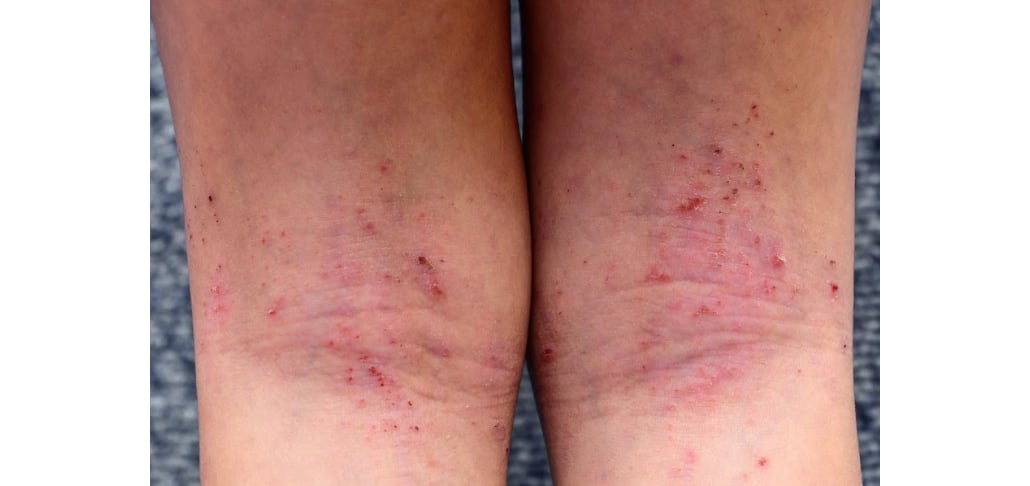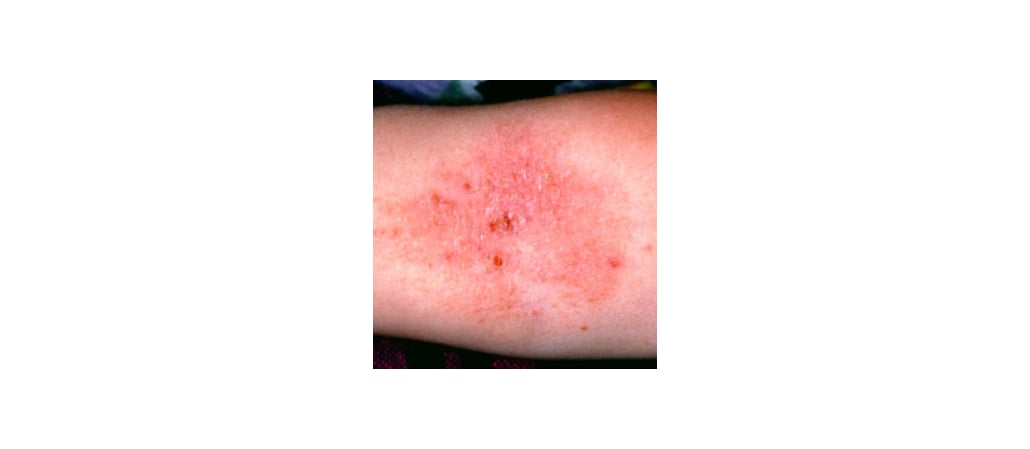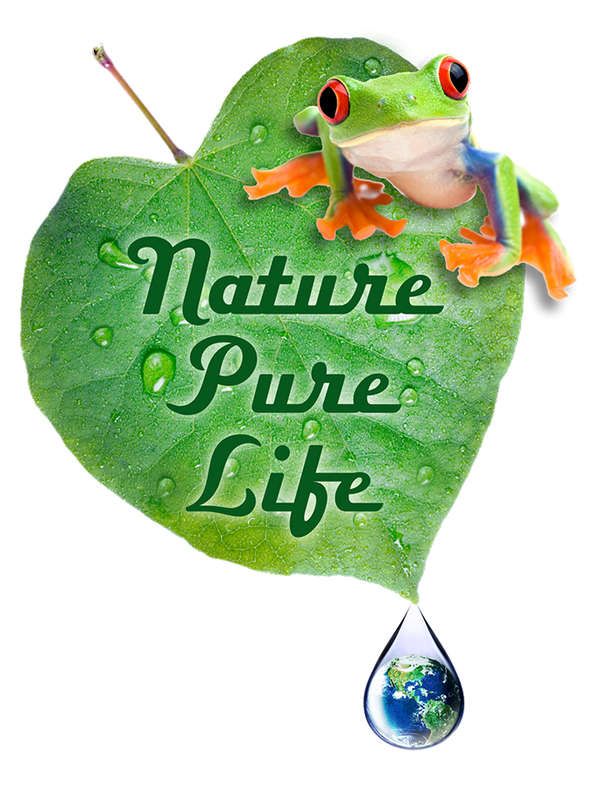
Rash Or Eczema?
Share
Rash or Eczema: Understanding the Key Differences
Skin woes can be a real bother, especially when you're trying to figure out whether you're dealing with a rash or eczema. Both conditions can turn your skin red, itchy, and uncomfortable, leaving you scratching your head—sometimes literally! While they appear similar at first glance, understanding the nuances between a random rash and eczema can make all the difference in finding relief. They're not just skin-deep issues; they can affect your self-esteem and daily life. So, let's peel back the layers and get to the root of these common skin conditions.
Have you ever found yourself staring at an itchy patch of skin, wondering if it's just a rash or something more persistent like eczema?
Key Takeaways
- Random rashes and eczema may look alike, but they have distinct causes and treatments
- Identifying whether it's a random rash or eczema can help tailor the right approach to relief
- Both conditions can affect people of all ages and skin tones
- There are various types of rashes and eczema, each with unique triggers and symptoms
- Effective management often involves lifestyle changes and medical treatments
Overview of Rash and Eczema
When it comes to skin issues, people often lump rashes and eczema into the same basket. However, dermatologists will tell you that these are two different beasts. A rash is any change in skin color or texture, while eczema, scientifically known as atopic dermatitis, is a chronic condition that tends to stick around. It's not uncommon for people to encounter both throughout their lives, sometimes even simultaneously. But why is it so crucial to differentiate between the two? Well, understanding the differences can lead to more effective treatments and relief.
Rashes can appear on anyone, regardless of age, gender, or skin tone. They can show up as red, inflamed patches and often result from a variety of triggers, including allergens, infections, or even heat. On the other hand, eczema is more than just a skin reaction; it's a chronic condition that usually requires ongoing management. While it often starts in childhood, it can persist into adulthood, making life a bit more challenging.
Now, you might wonder why some folks get a rash, while others develop eczema. It's all about the underlying causes and how your skin reacts to environmental factors. Health professionals emphasize the importance of knowing these differences because the treatment for a rash might not work for eczema, and vice versa. So, let's dive deeper into what sets these conditions apart.
Symptoms and Causes of Rash
Rashes are like the unwelcome party crashers of the dermatological world. They commonly manifest as red, inflamed patches on your skin, often bringing along itchy skin and sometimes even bumps. Whether it's a mild annoyance or a more serious issue, rashes can be caused by a plethora of factors. Allergens, infections, and even heat can set off those pesky red patches. If you have sensitive skin, you're more prone to these unwelcome guests.
Doctors often point out that viral infections can also cause widespread rashes. Think of the common childhood illnesses like chickenpox or measles—those are prime examples. And sometimes, a rash can be your body's way of waving a red flag, signaling an underlying issue that needs attention. That's why it's crucial to identify the cause as soon as possible. The faster you pinpoint the culprit, the quicker you can find relief.
On a more positive note, many rashes are relatively harmless and tend to go away on their own. However, that doesn't mean you should ignore them. Consulting a healthcare provider can help determine the root cause and the best course of action. So, if you find yourself breaking out in a rash, don't just brush it off—take a closer look and tackle it head-on.
Symptoms and Causes of Eczema
Eczema, unlike your average rash, tends to stick around for the long haul. It typically presents as dry, itchy, and scaly skin, often leading to discomfort and frustration. But what makes eczema more than just a passing skin irritation? It can persist for years, it is ugly, itchy and can cause depression and social stigmatization.
Environmental stressors can also worsen eczema symptoms. Pollution, changes in weather, and even stress can trigger an eczema flare. It's a condition that often first appears in children, with symptoms that may improve as they grow older. But don't let your guard down—eczema can persist into adulthood and require ongoing management.
Atopic dermatitis, the most common form of eczema, is a chronic condition that demands attention and care. While it may not have a straightforward cure, understanding its triggers and symptoms can help you manage it effectively. And remember, you're not alone—many individuals face similar challenges, and there are resources available to help you cope.
Types of Rash
Rashes come in all shapes and sizes, each with its own set of causes and characteristics. Take heat rash, for instance. It's a common summer nuisance, often appearing as small, red bumps in sweaty areas like the back, chest, or neck. It occurs when sweat ducts become blocked, causing sweat to leak into the skin. Thankfully, heat rashes usually fade away as the weather cools or when the skin is kept dry.
Contact dermatitis, another common type of rash, happens when your skin comes into direct contact with irritants or allergens. Think of nickel jewelry, some plants, or certain soaps—these can lead to itchy, red patches. Then, there are hives, which are raised, itchy welts that often result from allergic reactions to foods, medications, or insect bites.
Viral rashes often accompany common childhood illnesses like roseola or fifth disease. These rashes can vary in appearance but are usually harmless and resolve on their own. On the fungal front, ringworm is a classic example, presenting as a circular rash with a clear, scaly edge. Each type of rash requires a different approach to treatment, so knowing the specific type can be a game-changer in finding relief.
Eczema In Babies
Eczema, also known as atopic dermatitis, is a prevalent skin condition that can manifest in infants as early as two to four months of age. Characterized by red, itchy patches on the skin, commonly found on the cheeks, scalp, and joints, eczema can be a source of discomfort for both the child and parents. It is essential to collaborate with a pediatrician to establish a comprehensive treatment plan that encompasses gentle skin care, regular moisturizing like our favorite, XZema from Nature Pure Life, and avoidance of triggers such as harsh soaps and chemicals. By providing proper care and attention, most infants with eczema can experience relief and effectively manage their symptoms.
Types of Eczema

Eczema is a bit of a chameleon, taking on various forms. Atopic dermatitis is the most common, often starting in childhood and characterized by dry, itchy patches. Contact eczema, similar to contact dermatitis, occurs when your skin reacts to specific allergens or irritants. It's like a stubborn guest who refuses to leave until the irritant is removed.
Dyshidrotic eczema is another form that causes small, itchy blisters on the palms of your hands or soles of your feet. It's often triggered by stress, allergies, or moist environments. Then there's nummular eczema, which appears as coin-shaped patches on the skin and can be mistaken for fungal infections.
Diagnosis and Tests for Rash and Eczema

Diagnosing skin conditions isn't always a straightforward process. Dermatologists often start with a thorough skin examination to differentiate between random rashes and eczema. They'll look for specific patterns, textures, and locations on your body. Sometimes, the differences can be subtle, making a professional diagnosis difficult. In our opinion, a biopsy is crucial.
Allergy tests can also come into play, especially when trying to pinpoint the triggers for both conditions. If you suspect that certain foods, products, or environmental factors might be causing your symptoms, an allergy test can provide valuable insights. Blood tests might be necessary if there's a need to explore underlying causes of persistent skin issues.
In some cases, a skin biopsy may be the best course of action, especially if the condition is unclear or severe. By examining a small sample of your skin under a microscope, healthcare providers can get a closer look at what's going on beneath the surface. Getting an accurate diagnosis is the first step in crafting an effective treatment plan.
Treatment Options for Rash and Eczema

When it comes to finding relief, over-the-counter creams like all natural XZema can be a godsend for mild rash symptoms. Some creams often contain ingredients like hydrocortisone or calamine, which do little to help. Check the ingredients. Is it all natural? Is it plant based? What if you're dealing with a more severe eczema flare-up? That's where prescription topical steroids come into play, they are the first line of defense that doctors prescribe for just about any rash, and they don't actually do anything. They hope your immune system will kick in before the steroid prescription is finished, or the rash usually comes back worse than ever.
Antihistamines, both oral and topical, can also help reduce itching and inflammation for both rashes and eczema. They work by blocking histamines, the chemicals responsible for allergic reactions. And don't underestimate the power of prevention—avoiding known triggers can prevent future outbreaks of both conditions.
Moisturizers play a critical role in managing eczema symptoms. Keeping your skin hydrated can reduce dryness and itching, making life a bit more comfortable. It's all about finding the right balance of treatments and lifestyle changes to keep your skin in check. Creams like ZXema are specifically formulated to ease the itch and rash of eczema. The itch is usually gone within minutes of first application, and rash begins to dry up by day three in most cases. It also contains plant based moisturizers that hydrate your skin and aid in healing dryness.

Natural Treatment Options For Eczema
XZema For Eczema
Are you tired of dealing with the discomfort and embarrassment of eczema? Look no further than XZema for an effective solution. This innovative treatment is specifically designed to soothe and heal irritated skin, providing much-needed relief for those suffering from this common skin condition. Say goodbye to the itchiness and redness associated with eczema and hello to healthy, happy skin with XZema. Invest in your skin's health today and experience the difference for yourself.
Prognosis and Management of Rash and Eczema
Most rashes resolve quickly with proper care and avoidance of triggers. A little TLC goes a long way, and once the irritant is removed, your skin often bounces back. However, eczema requires more than just a quick fix—it's a condition that demands ongoing management to prevent flare-ups.
Lifestyle changes, like using all natural plant based moisturizers, can benefit eczema sufferers. Regular follow-ups with a dermatologist can also ensure optimal skin health and keep you on the right track. And let's face it, dealing with chronic eczema can be emotionally challenging. That's where support groups come in, offering a sense of community and understanding.
In the end, managing these conditions is all about taking control and making informed choices. By understanding the triggers and symptoms, you can navigate the path to healthier skin with confidence.
As we wrap up this deep dive into rashes and eczema, remember that knowledge is power. By understanding the differences and treatment options for these skin conditions, you can take proactive steps toward relief. So, what's your next move in caring for your skin? Have you discovered any surprising triggers or remedies along the way? Let's continue the conversation and share our experiences.

Frequently Asked Questions
What is eczema?
Eczema, also known as atopic dermatitis, is a chronic skin condition that causes inflammation, itching, and redness. It often appears as dry, scaly patches on the skin that can become cracked and painful. Researchers may be zeroing in on the actual cause of eczema, one of the recently discovered HHV viruses. Eczema is believed to be linked to an overactive immune response and can be triggered by various factors such as allergies, stress, and environmental irritants. While there is no cure for eczema, it can be managed through proper skincare, like using XZema from Nature Pure Life, lifestyle changes, and medication.
What are the symptoms of eczema?
Eczema, also known as atopic dermatitis, is a common skin condition that causes red, inflamed, and itchy patches of skin. Symptoms of eczema include dry, scaly skin; intense itching that may worsen at night; red or brownish-gray patches; small, raised bumps that may leak fluid and crust over if scratched; and thickened, cracked, or otherwise damaged skin from repeated scratching. Eczema can occur anywhere on the body, but is most common on the hands, feet, wrists, elbows, and behind the knees. In severe cases, eczema can cause blisters and oozing sores.
What are the types of eczema?
There are several types of eczema, each with its own characteristics and triggers. Atopic dermatitis is the most common form of eczema, often seen in people with a family history of allergies, asthma, or eczema. Dyshidrotic eczema affects the hands and feet, presenting as itchy blisters. Nummular eczema is characterized by circular patches of dry, scaly skin. . Understanding the type of eczema can help in managing symptoms and finding appropriate treatment options.
Who does eczema affect?
Eczema can affect people of all ages, but it is most common in infants and young children. It is estimated that around 10-20% of infants and up to 3% of adults in the United States have eczema. Eczema can be triggered by a variety of factors, including genetics, environmental factors, stress and allergies. People with eczema often experience dry, itchy, and inflamed skin that can be both physically uncomfortable and emotionally distressing. Proper management and treatment can help control eczema symptoms and improve quality of life for those affected by the condition.
How common is eczema?
Eczema is a common skin condition that affects millions of Americans. According to the National Eczema Association, over 31 million people in the United States alone have some form of eczema. This chronic condition can cause skin to become red, inflamed, and itchy, leading to discomfort and frustration for those affected. While the exact cause of eczema is still unknown, experts believe it is linked to one of the human herpes viruses, just like shingles is linked to chicken pox, another HHV. Managing eczema often involves a combination of skincare routines, avoiding triggers, and sometimes prescription medications. It's important for those with eczema to work closely with their healthcare providers to find the best treatment plan for their individual needs. Many people are opting for gentler, more natural options for their healthcare and Nature Pure Life delivers, with all natural rash specific formulas like XZema.
How common is eczema in babies?
Eczema, also known as atopic dermatitis, is a common skin condition that affects many babies. It is estimated that about 10-20% of infants are affected by eczema, making it one of the most common skin conditions in babies. Eczema is characterized by red, itchy, and inflamed skin, which can be uncomfortable and distressing for the baby. With proper management and treatment, most babies with eczema can experience relief from their symptoms and have healthy, clear skin. Why not try XZema". Safe on babies, no known side effects, fast relief.
What causes eczema to start?
Eczema is a common skin condition that can cause red, itchy patches on the skin. While the exact cause of eczema is not known, certain factors can trigger its onset. These factors include genetics, environmental factors, immune system dysfunction, and skin barrier defects. Additionally, allergies, stress, and irritants like harsh soaps or fabrics can contribute to the development of eczema. It is important to identify and avoid these triggers to manage and prevent eczema flare-ups.
Is it heat rash or eczema?
When it comes to identifying a skin condition, it can be difficult to determine whether it's a heat rash or eczema. Heat rash, also known as prickly heat, typically occurs when sweat gets trapped in the sweat ducts, causing red bumps and itching. On the other hand, eczema is a chronic skin condition characterized by red, inflamed skin that can be itchy and uncomfortable. If you're unsure of what you're dealing with, it's best to consult a dermatologist for a proper diagnosis and treatment plan.
Links
https://www.aad.org/public/diseases/eczema/adult/can-get
https://www.niaid.nih.gov/diseases-conditions/eczema-treatment
